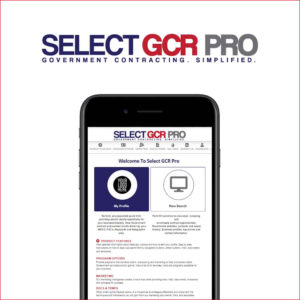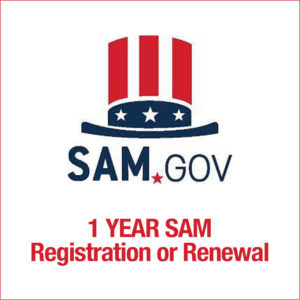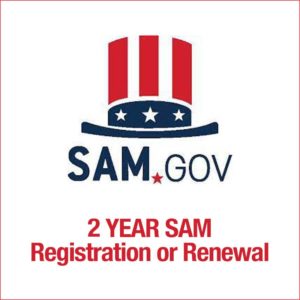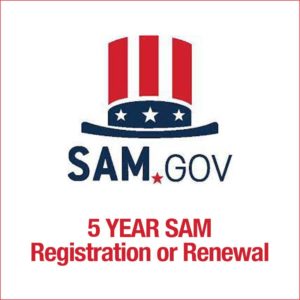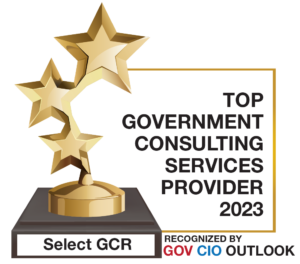How do I get government contracts? This article simplifies the process: understanding the basics, finding the right opportunities, preparing your business, and crafting winning bids. Learn how to tap into this valuable market step-by-step.
Key Takeaways
-
Government contracts offer significant growth opportunities for small businesses, with federal agencies allocating at least 23% of contracting dollars to small businesses annually.
-
Utilizing resources like SAM.gov and private market intelligence tools can enhance your ability to identify and compete for government contracting opportunities.
-
Preparing effectively by understanding compliance requirements and marketing strategies is essential for securing and managing government contracts successfully.
Understanding Government Contracts

A government contract is an agreement between a private company and a government agency to provide goods or services for a fee. For small businesses, engaging with government contracts opens doors to new customers and revenue opportunities. Federal contracts, in particular, represent a significant growth opportunity, as they allow small businesses to access the largest market in the world.
The federal government has a strong commitment to supporting small businesses in federal contracting. Annually, at least 23% of contracting dollars are specifically allocated to small businesses. This commitment is supported by the Small Business Administration (SBA), which plays a crucial role in ensuring that small businesses have the opportunity to participate in government contracts. Programs such as the GSA Schedules feature pre-approved vendors, making it easier for small businesses to access government contracting opportunities.
Active support for small businesses by the U.S. government promotes economic growth and job creation. Agencies may even provide a stronger chance of procuring a contract when bidding to help small businesses meet their targets. Understanding the landscape of government contracts, therefore, is the first step toward leveraging these opportunities for your business.
Identifying Contracting Opportunities

Identifying the right contracting opportunities requires more than just browsing government websites. Government agencies advertise contracting opportunities through various avenues, including socioeconomic set-aside programs, government websites, and industry days. FY 2025 forecasts predict a diverse array of federal contracts totaling over $27.3 billion across various sectors, highlighting the importance of staying informed about federal contracting data to find government contracts and government contract bids.
Market intelligence tools offer insights into spending trends and procurement patterns, enhancing your competitive edge. Understanding agency priorities and procurement timelines helps identify the most promising opportunities. Proactive efforts, beyond basic searches, significantly improve your chances of finding suitable contracts.
Federal Contract Databases
Federal contract opportunities are primarily listed on SAM.gov, but leveraging private market intelligence tools like GovWin IQ can enhance your search process. GovWin IQ is a prominent resource that helps businesses predict government contract opportunities up to five years before solicitation, making it a leading platform for finding and winning government contracts.
Additionally, the Dynamic Small Business Search (DSBS) facilitates government agencies in locating small business contractors easily. Using these databases, businesses can efficiently locate federal contracting opportunities and position themselves for success.
State and Local Contract Portals
State and local government contracts are vital for small businesses looking to expand their markets. The SLED (State, Local, and Education) contracting market offers various opportunities to sell goods and services. The first step in finding state and local government contracts is determining which levels of government and regions you want to target.
Tools like GovWin IQ efficiently track opportunities from specific targeted government agencies at the state and local levels. Attending events held by target agencies is a proactive way for small businesses to learn about government contracting opportunities and build relationships within the government contracting space.
Preparing Your Business for Government Contracts
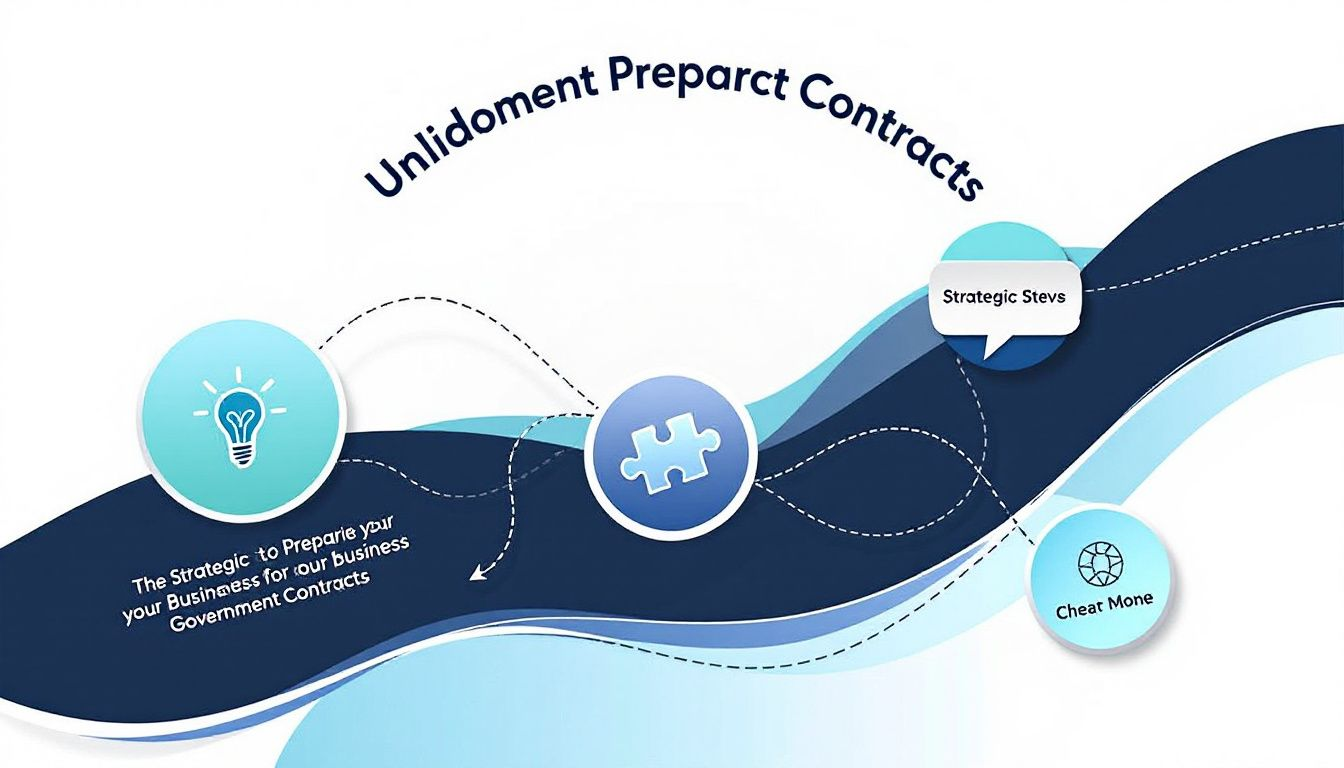
Before you can operate as a prime contractor or subcontractor, your business must first qualify legally as a small business and register accordingly. Meeting specific size standards set by the SBA qualifies businesses for small business contracts. Participation in government programs can enable small businesses to qualify for contracts set aside for socio-economic demographics.
Cybersecurity compliance is crucial when contracting with the Department of Defense. Focusing on two or three promising government agencies can help target your marketing efforts more effectively.
UEI and NAICS Codes
A Unique Entity Identifier (UEI) is a 12-digit code assigned to businesses upon completing SAM registration. NAICS codes identify the category of products and services offered by businesses. Understanding these classifications is key, especially since 23% of federal contracting dollars are set aside for small businesses through various programs.
Small business set-aside contracts are specifically reserved for small businesses under various programs, making it crucial for businesses to accurately identify their NAICS codes.
SAM Registration
SAM registration is necessary for businesses to be eligible for federal contracts and is used by government agencies to find contractors. Businesses no longer need to obtain a DUNS number, as a UEI is now assigned upon registering with SAM.
An appealing SAM profile is crucial, as it acts like a résumé for businesses seeking government contracts. A comprehensive and up-to-date profile increases your chances of being noticed by government buyers.
Marketing Your Business to Government Agencies
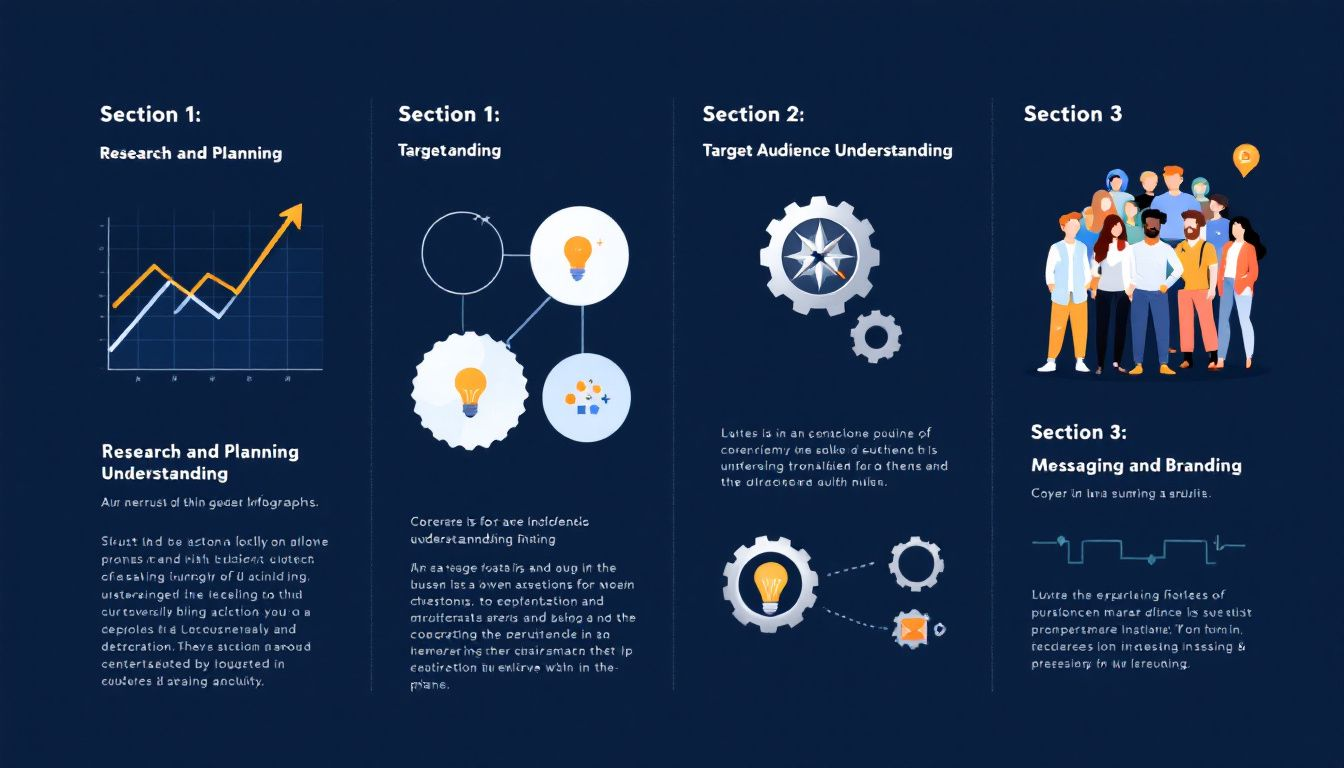
The federal government represents the largest market for goods and services, necessitating tailored marketing approaches for contractors. Effective marketing to federal agencies and government agencies involves understanding their missions and spending habits.
Focus on understanding specific agency needs to better tailor your marketing efforts. Promoting competition through competitive bidding can help government agencies achieve better value and lower costs. Acquiring a GSA contract enhances a business’s visibility and opens up additional bidding opportunities.
Creating a Capability Statement
A well-crafted capability statement differentiates your business from competitors in the crowded government contracting market. It should include your company’s branding, core capabilities, and contact information. Emphasize relevant certifications and past performance to attract government buyers.
Make sure your capability statement is visually appealing and limited to one or two pages. This concise document can be a powerful tool in your marketing arsenal.
Networking with Decision Makers
Building a strong network within government agencies increases the likelihood of being considered for contract bids. Establishing relationships with government decision-makers can enhance your visibility and opportunities. Engaging in industry events hosted by target agencies allows businesses to gain insights and establish connections with key decision-makers.
These events offer valuable networking opportunities with contracting officers, further increasing your chances of securing contracts.
Bidding on Government Contracts
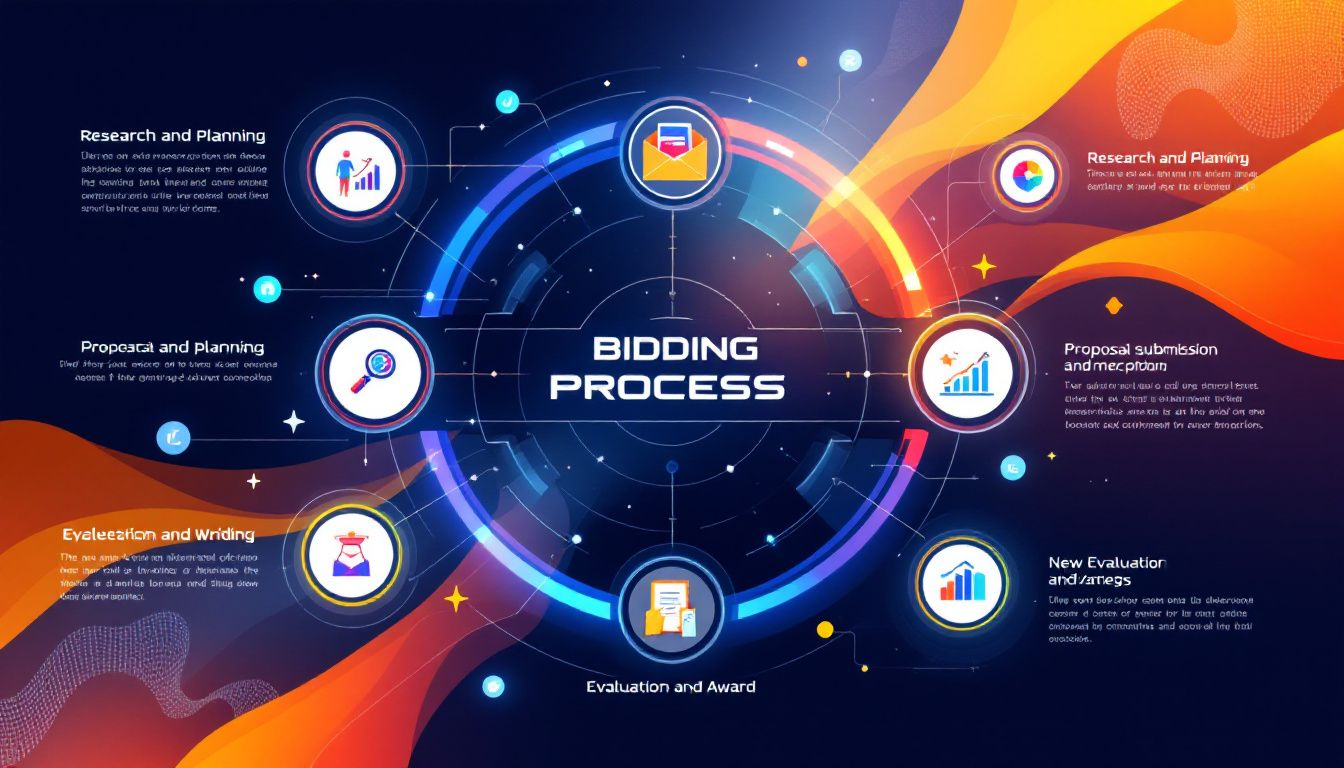
Identifying the types of government contracting methods and vehicles is essential. You may not make a lot of money on your first federal contract, so plan accordingly. Pricing is key for securing your first federal contract; ensure your bid is competitive.
Upon finding a suitable contract opportunity, prepare your proposal to meet the requirements. Securing multi-year contracts involves identifying and evaluating competitive threats.
Analyzing RFPs and RFQs
RFPs often include specific instructions that vendors must follow to ensure their proposals are considered. Clarifying any uncertainties in the RFP/RFQ is crucial to avoid making assumptions that could lead to inaccuracies in the proposal.
Thorough analysis of RFPs and RFQs helps businesses understand the client’s specific needs and tailor their responses accordingly.
Preparing a Winning Proposal
A compelling executive summary is key to capturing the attention of decision-makers by summarizing the proposal’s main benefits. Successful proposals must clearly demonstrate how the vendor’s solution meets the agency’s needs. Maintaining technical accuracy while using clear language ensures all stakeholders understand the content.
Thorough proofreading eliminates errors and ensures a professional presentation before submission. Including case studies and client testimonials can enhance credibility and demonstrate the reliability of the vendor. Providing a transparent pricing structure, detailing what the client is paying for, avoids hidden costs.
Leveraging Subcontracting Opportunities
Subcontracting provides small businesses with valuable experience by working alongside established prime contractors. Small businesses should secure work as subcontractors to gain experience before bidding on federal contracts directly.
Subcontractors support prime contractors by helping complete designated portions of work in government contracts. Federal contracts exceeding a specific value are required to include subcontracting plans that set goals for engaging small businesses and government contractors.
Managing and Fulfilling Government Contracts
Managing government contracts involves complying with various federal regulations and guidelines. Staying informed about regulations and ensuring compliance builds trust in government contracting processes. Defining clear objectives and requirements is crucial for effective government contract management, ensuring accountability and reducing disputes.
Comprehensive contract documents should clearly outline terms, conditions, and performance metrics to minimize misinterpretations. Regular oversight and monitoring of contracts are essential to ensure that vendors fulfill their obligations effectively.
Handling Protests and Disputes
Protests and disputes are an inevitable part of the government contracting process. Protesters must send a copy of their complete protest to the designated official or contracting officer within one day of filing with the GAO to avoid dismissal. If a protest is filed before the contract award, the agency cannot proceed with the award unless authorized by the head of contracting through a written determination.
Once a protest is filed, the contracting agency must notify all parties with a stake in the contract of the protest’s status. The GAO aims to issue a decision on protests within 100 days, or 65 days if expedited, from the date of the protest filing.
Utilizing Resources and Support Programs
The federal government actively supports small businesses in pursuing contracting opportunities. The SBA offers complimentary training for both prime contractors and subcontractors on subcontracting regulations and best practices. The SBA’s SUBNet database is a key resource for small businesses to discover subcontracting opportunities posted by larger contractors.
Veteran-owned small businesses have access to unique federal programs to help them secure contracts. These programs aim to increase contract awards for veteran-owned businesses.
Small Business Administration Programs
The SBA offers programs that help small businesses qualify for exclusive contracts and gain access to mentoring. The Mentor-Protégé program allows small businesses to learn from experienced contractors.
The HUBZone program aims to distribute at least 3% of federal contracting funds to businesses in historically underutilized areas.
GSA Schedules
GSA Schedules are lists of pre-approved vendors for government contracts. Obtaining a contract with the GSA increases visibility as a vendor and provides access to contract bidding opportunities.
Staying Informed About Market Trends
An in-depth understanding of the government contracting market is imperative for maintaining a competitive edge. The SLED contracting market focuses on sales to state and local government entities, which collectively spend over a trillion dollars annually.
Researching the federal marketplace significantly improves your chances of winning a government contract. Understanding the spending cycles and fiscal year schedules of target state and local agencies is crucial for identifying optimal contracting opportunities.
Summary
Securing government contracts can be a transformative step for your business, providing access to the largest market in the world. This guide has walked you through the essential steps, from understanding the basics of government contracts to identifying opportunities, preparing your business, and crafting winning proposals. We’ve also covered the importance of marketing your business, leveraging subcontracting opportunities, and managing and fulfilling contracts effectively.
Remember, persistence and strategic planning are key. By staying informed about market trends and utilizing the available resources and support programs, you can position your business for success in the government contracting landscape. Take action today and start your journey toward becoming a trusted government contractor.
Frequently Asked Questions
What is a government contract?
A government contract is a formal agreement between a private entity and a government agency to supply goods or services in exchange for payment. These contracts are essential for facilitating government projects and services.
How can I find government contracting opportunities?
To find government contracting opportunities, utilize federal databases such as SAM.gov, as well as market intelligence tools like GovWin IQ and various state and local contract portals. These resources will help you discover available contracts relevant to your business.
What is SAM registration, and why is it important?
SAM registration is essential for businesses seeking federal contracts, as it provides a Unique Entity Identifier (UEI) that government agencies use to identify contractors. Without this registration, you cannot participate in federal procurement opportunities.
How do I create an effective capability statement?
To create an effective capability statement, ensure it includes your company’s branding, core capabilities, contact information, relevant certifications, and past performance. Keep it visually appealing and concise to make a strong impression.
What resources are available to help small businesses with government contracts?
To support small businesses in securing government contracts, the SBA provides programs like the Mentor-Protégé and HUBZone initiatives, as well as access to the SUBNet database for subcontracting opportunities. Utilizing these resources can significantly enhance your chances of success in government contracting.

